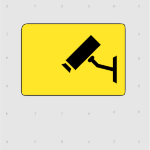Dickimaw Books Blog 
Modern Communication 🔗
[Previously posted on Facebook 2015-06-07.] During February 2013, thieves stole the phone cables that ran underground between Saxlingham Nethergate and Hempnall. This left the village without landline or Internet for about a week. We have again been without landline and Internet for nearly two weeks [June 2015], but this time it was due to a fault somewhere on the network. Thankfully it finally seems to have been fixed. I sometimes read cries of “we’re in the twenty-first century!” in a variety of contexts from responses to requests for plain text alternatives to HTML through to creative writing guides that ridicule the idea of any character in a modern novel being without some form of modern communication.
So what’s the problem? Doesn’t everyone have a mobile phone these days? Well, yes, most of us do, but the problem with mobile phones is that they require a signal to operate and that signal is unfortunately mostly absent in our village. I can sometimes get one bar from our upstairs windows. There’s sometimes a blip of reception around three o’clock in the morning and any text messages sent to me that day will finally reach my phone and alert me of their arrival. I’m told that it’s sometimes possible to get a signal from the village hall car park. I expect it might be possible to get reception from the top of the church tower, although I don’t know of anyone who’s tried and I don’t fancy volunteering. One of our neighbours apparently has one of those gadgets that can boost the signal to his mobile phone, but it requires the phone cable to be present and operational.
This means that if we lose the landline, we’re without any practical form of electronic communication. How much of a problem is this in our technologically advanced twenty-first century? For me it means I have to close my on-line book store, because without an Internet [connection] I can’t find out when a customer has placed an order and so I can’t process it. (Which means driving somewhere where I can access the Internet in order to close the store.) For others, it means they can’t do any on-line shopping. We have no shops in the village. Anyone who doesn’t have a car is reliant on the two-hourly bus service to do their shopping if they can’t get it delivered. But that’s a mere inconvenience compared to other problems.
We share a GP with Newton Flotman, but the Saxlingham Nethergate surgery closed down a few years ago, so we now either have to travel to the Newton Flotman surgery or register with a surgery in another village further away. When we used to have a surgery, the non-housebound with repeat prescriptions could walk to it when they needed to request new medication. Now you either have to drive to the surgery or phone. There’s no scheduled bus service that goes between Saxlingham Nethergate and Newton Flotman. You can, however, use the dial-a-ride Borderhoppa to transport you. You might perhaps be able to guess from the name how you go about booking it. The energetic amongst you might suggest walking. It’s about a mile and a half along a country lane with blind corners and little to no verges and no pavement until you reached the A140. It’s mostly national speed limit along that lane. If you like the adrenalin rush of extreme sports, you might enjoy walking along it. What type of people mostly need the surgery? The infirm, the sick, pregnant women who need regular check-ups, babies who need regular check-ups. But if they don’t have a car, maybe they can find a volunteer in the village to take them. Unfortunately for the housebound, their only method of asking their neighbours for help may be the telephone.
The biggest problem is what happens if there’s an emergency? How do we dial 999 without a working telephone? The village has a defibrillator but it requires a phone call to the ambulance service to access it. What happens if someone has a stroke, a heart attack, falls off a ladder, etc? We have to run around the village waving our mobile phones in the air or jump in the car and drive until we can find a signal. The ambulance service usually requires you to be near the patient so they can give advice on immediate aid or ask questions about the patient’s state. This can’t be done if you’re dangling out of an upstairs window or have had to drive several miles away.
We’re only eight miles from Norwich. We’re not off the map where there be dragons (or perhaps we are, sat navs certainly can’t seem to find us) but sometimes we’re without phones and Internet, and sometimes we’re without electricity. Forty or fifty years ago, villages didn’t have life-saving devices like defibrillators, but villagers generally knew who to run to in the event of an accident. Back then a village would typically have had a doctor or a nurse or a constable, and there would’ve been a general store where people could buy groceries. We do have some backup plans. We have a storm kettle and one of our wood burners has a flat top on which we were able to heat a pan of beans during a power cut. Power cuts seemed a fact of life in my childhood growing up in a seaside town during the seventies. The problem with the twenty-first century is that when technology fails we can be in a worse state than we might’ve been in when that technology didn’t exist or only existed in a primitive state.
And that, of course, is the basis of post-apocalyptic dystopian stories.
Next Post
Previous Post
Recent Posts
 There are a growing number of digital historians who are interested in documenting old computing systems from the twentieth century, but much of the information has been lost and coincident names can make it hard to search. This article is about the RISC OS ARMTeX distribution, which provided TeX and LaTeX for the ARM-powered Acorn computers in the 1990s.
There are a growing number of digital historians who are interested in documenting old computing systems from the twentieth century, but much of the information has been lost and coincident names can make it hard to search. This article is about the RISC OS ARMTeX distribution, which provided TeX and LaTeX for the ARM-powered Acorn computers in the 1990s. The DRM-free ebook retailer SmashWords has its annual Summer/Winter sale from 1st – 31st July 2025. My crime novel “The Private Enemy” and children’s illustrated story “The Foolish Hedgehog” both have a 50% discount, and my crime fiction short stories “I’ve Heard the Mermaid Sing”, “Unsocial Media”, “Smile for the Camera”, and “The Briefcase” have a 100% discount (i.e. free!) for the duration of the sale. Did you know that you can gift ebooks on SmashWords?
The DRM-free ebook retailer SmashWords has its annual Summer/Winter sale from 1st – 31st July 2025. My crime novel “The Private Enemy” and children’s illustrated story “The Foolish Hedgehog” both have a 50% discount, and my crime fiction short stories “I’ve Heard the Mermaid Sing”, “Unsocial Media”, “Smile for the Camera”, and “The Briefcase” have a 100% discount (i.e. free!) for the duration of the sale. Did you know that you can gift ebooks on SmashWords? If you have read my short story Smile for the Camera, did you notice that the ending could have two possible interpretations? (No spoilers please!) As a writer, it’s always difficult to tell if something is too obvious or too obscure. If you need a hint, consider the naming scheme and remember that not everyone is what they say or imply that they are.
If you have read my short story Smile for the Camera, did you notice that the ending could have two possible interpretations? (No spoilers please!) As a writer, it’s always difficult to tell if something is too obvious or too obscure. If you need a hint, consider the naming scheme and remember that not everyone is what they say or imply that they are. The Ex-Cathedra writing group were delighted to present a cheque for £1,400 to St Martins Housing Trust during their collection at Tesco Harford Bridge on 6th December 2024. The money was raised from sales of the book Tales for Our Times, an anthology of short stories written by the group. The cheque was received by Ian Hanwell on behalf of St Martins. Many thanks to the support of everyone who purchased a copy and to the staff at Tesco Harford Bridge for allowing us to make the presentation there.
The Ex-Cathedra writing group were delighted to present a cheque for £1,400 to St Martins Housing Trust during their collection at Tesco Harford Bridge on 6th December 2024. The money was raised from sales of the book Tales for Our Times, an anthology of short stories written by the group. The cheque was received by Ian Hanwell on behalf of St Martins. Many thanks to the support of everyone who purchased a copy and to the staff at Tesco Harford Bridge for allowing us to make the presentation there. Search Blog
📂 Categories
- Autism
- Books
- Children’s Illustrated Fiction
- Illustrated fiction for young children: The Foolish Hedgehog and Quack, Quack, Quack. Give My Hat Back!
- Creative Writing
- The art of writing fiction, inspiration and themes.
- Crime Fiction
- The crime fiction category covers the crime novels The Private Enemy and The Fourth Protectorate and also the crime short stories I’ve Heard the Mermaid Sing and I’ve Heard the Mermaid Sing.
- Fiction
- Fiction books and other stories.
- Language
- Natural languages including regional dialects.
- (La)TeX
- The TeX typesetting system in general or the LaTeX format in particular.
- Music
- Norfolk
- This category is about the county of Norfolk in East Anglia (the eastern bulgy bit of England). It’s where The Private Enemy is set and is also where the author lives.
- RISC OS
- An operating system created by Acorn Computers in the late 1980s and 1990s.
- Security
- Site
- Information about the Dickimaw Books site.
- Software
- Open source software written by Nicola Talbot, which usually has some connection to (La)TeX.
- Speculative Fiction
- The speculative fiction category includes the novel The Private Enemy (set in the future), the alternative history novel The Fourth Protectorate, and the fantasy novel Muirgealia.
🔖 Tags
- Account
- Alternative History
- Sub-genre of speculative fiction, alternative history is “what if?” fiction.
- book samples
- Bots
- Conservation of Detail
- A part of the creative writing process, conservation of detail essentially means that only significant information should be added to a work of fiction.
- Cookies
- Information about the site cookies.
- Dialect
- Regional dialects, in particular the Norfolk dialect.
- Docker
- Education
- The education system.
- Ex-Cathedra
- A Norfolk-based writing group.
- Fantasy
- Sub-genre of speculative fiction involving magical elements.
- File formats
- FlowframTk
- A vector graphics application written in Java that can export to pgf picture drawing code but can also be used to construct frames for use with the flowfram package. Home page: dickimaw-books.com/software/flowframtk. (FlowframTk was originally called JpgfDraw.)
- Hippochette
- A pochette (pocket violin) with a hippo headpiece.
- History
- I’ve Heard the Mermaid Sing
- A crime fiction short story (available as an ebook) set in the late 1920s on the RMS Aquitania. See the story’s main page for further details.
- Inspirations
- The little things that inspired the author’s stories.
- Linux
- Migration
- Posts about the website migration.
- Muirgealia
- A fantasy novel. See the book’s main page for further details.
- News
- Notifications
- Online Store
- Posts about the Dickimaw Books store.
- Quack, Quack, Quack. Give My Hat Back!
- Information about the illustrated children’s book. See the book’s main page for further details.
- Re-published
- Articles that were previously published elsewhere and reproduced on this blog in order to collect them all together in one place.
- Sale
- Posts about sales that are running or are pending at the time of the post.
- Site settings
- Information about the site settings.
- Smile for the Camera
- A cybercrime short story about CCTV operator monitoring a store’s self-service tills who sees too much information.
- Story creation
- The process of creating stories.
- TeX Live
- The Briefcase
- A crime fiction short story (available as an ebook). See the story’s main page for further details.
- The Foolish Hedgehog
- Information about the illustrated children’s book. See the book’s main page for further details.
- The Fourth Protectorate
- Alternative history novel set in 1980s/90s London. See the book’s main page for further details.
- The Private Enemy
- A crime/speculative fiction novel set in a future Norfolk run by gangsters. See the book’s main page for further details.
- Unsocial Media
- A cybercrime fiction short story (available as an ebook). See the story’s main page for further details.
- World Book Day
- World Book Day (UK and Ireland) is an annual charity event held in the United Kingdom and the Republic of Ireland on the first Thursday in March. It’s a local version of the global UNESCO World Book Day.
- World Homeless Day
- World Homeless Day is marked every year on 10 October to draw attention to the needs of people experiencing homelessness.

